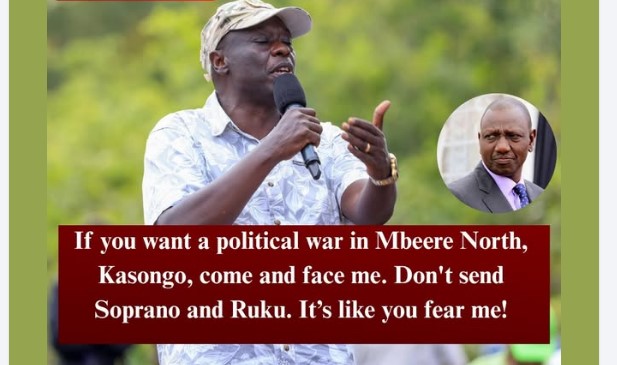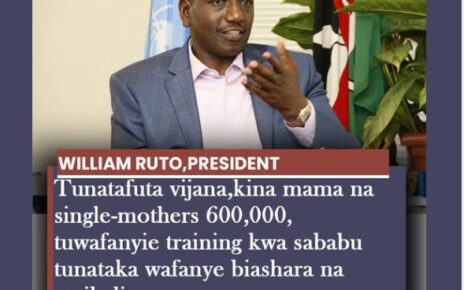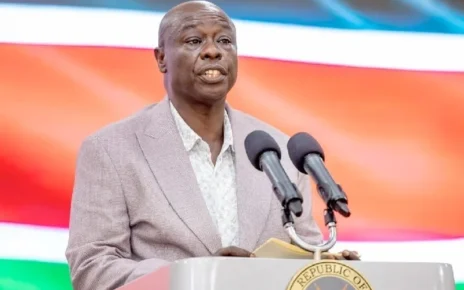Deputy President Rigathi Gachagua has once again escalated his confrontational tone toward President William Ruto, issuing one of his boldest statements yet during a heated address in Mbeere North.
In a fiery message directed at the Head of State, Gachagua challenged President Ruto to confront him directly instead of deploying what he termed as “proxies” in the political contest unfolding in the region.
Gachagua declared:
“If you want a political war in Mbeere North, Kasongo, come and face me. Don’t send Soprano and Ruku. It’s like you fear me!”
The Deputy President’s remarks sparked immediate reactions among political observers, with many noting that Gachagua has increasingly framed his disagreements with Ruto as a struggle for control, influence, and respect within the Kenya Kwanza coalition. His mention of “Soprano and Ruku”—a jab at two vocal leaders aligned with the President—was seen as a direct attack on the individuals he believes are being used to undermine him politically.
Gachagua’s latest outburst adds to the ongoing tension between the two top leaders, a rift that has widened over disagreements regarding Mt. Kenya politics, resource distribution, and succession calculations ahead of the next general election.
Political analysts argue that his challenge to the President is not only a show of defiance but also an attempt to solidify his support base in Mt. Kenya by portraying himself as a leader who does not fear confrontation—whether with local rivals or with the President himself.
The confrontation in Mbeere North is seen as part of a larger political chess game, with both camps mobilizing allies and resources to assert dominance across key strongholds. Gachagua’s statement suggests he feels targeted and is prepared to take the battle head-on.
His bold claim that the President “fears him” has added fuel to the already‑tense political climate, setting the stage for louder confrontations as both leaders’ supporters intensify their engagements on the ground.
This latest salvo from Gachagua underscores a deepening power struggle that could significantly reshape Kenya Kwanza’s internal dynamics and the wider national political landscape.



